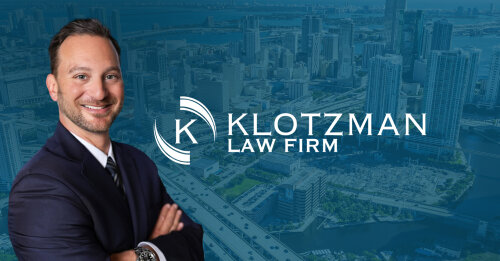Best Brain Injury Lawyers in New York
Share your needs with us, get contacted by law firms.
Free. Takes 2 min.
Or refine your search by selecting a city:
List of the best lawyers in New York, United States
About Brain Injury Law in New York, United States
A brain injury, also known as a traumatic brain injury or TBI, is a complex medical condition usually resulting from a blow or jolt to the head, or a penetrating injury. In New York, brain injury cases may arise from car accidents, falls, sports injuries, violence, medical negligence, or unsafe work environments. The law recognizes the serious, often life-changing nature of these injuries and allows victims to seek compensation if their injury resulted from another party's negligence or wrongful conduct.
Because brain injuries can have far-reaching consequences such as loss of income, ongoing medical care, rehabilitation, and emotional trauma, New York law provides victims with the right to pursue legal claims through civil litigation. Compensation may cover medical expenses, lost wages, pain and suffering, and other damages.
Why You May Need a Lawyer
Navigating a brain injury claim can be complex, and insurance companies are often reluctant to pay the full value of a claim. You may need a lawyer if:
- You or your loved one suffered a brain injury due to another person's negligence, such as a car accident, fall, or work-related incident.
- You are dealing with medical bills, lost wages, or ongoing rehabilitation needs.
- An insurance company has denied your claim or offered a low settlement.
- The cause of the injury is disputed or unclear.
- You are unsure about your legal rights or the value of your claim.
- There is potential third-party liability, such as defective products or dangerous property conditions.
A knowledgeable attorney can help gather evidence, deal with insurers, identify liable parties, and maximize potential compensation.
Local Laws Overview
New York law has several important aspects relating to brain injury cases:
- Comparative Negligence: New York follows a pure comparative negligence rule. You can recover damages even if you are partly at fault, but your award will be reduced by your percentage of fault.
- Statute of Limitations: You generally have three years from the date of injury to file a personal injury lawsuit in New York. If the case involves medical malpractice, the window is generally two years and six months from the date of the malpractice.
- No-Fault Insurance: After a car accident, New York's no-fault insurance system covers basic expenses regardless of fault, but you can pursue a lawsuit for serious injuries like TBI.
- Work-Related Injuries: If your injury occurred at work, you may be entitled to workers' compensation benefits, but you might also have a third-party claim.
- Wrongful Death: If a brain injury leads to death, family members may bring a wrongful death claim within two years.
Additional regulations may apply depending on the circumstances, such as claims against government entities, which require quicker action and special procedures.
Frequently Asked Questions
What is a traumatic brain injury?
A traumatic brain injury is a disruption of normal brain function caused by an external force, such as a blow to the head, fall, or penetration. TBIs can range from mild concussions to severe, life-altering injuries.
How do I know if I have a valid brain injury claim?
You may have a valid claim if your brain injury resulted from another party's negligence, reckless actions, or a dangerous condition. An attorney can evaluate your situation and advise you on your legal options.
What damages can I recover in a brain injury lawsuit?
Compensation may include medical expenses, lost earnings, lost earning capacity, rehabilitation costs, pain and suffering, emotional distress, and in some cases, punitive damages.
How long do I have to file a lawsuit for a brain injury in New York?
Generally, you have three years from the date of the injury. Medical malpractice-related claims and cases involving public entities may have shorter deadlines.
Can I sue if a loved one died from a brain injury?
Yes. Immediate family members or representatives of the estate may bring a wrongful death claim within two years of the date of death.
What evidence is needed for a brain injury lawsuit?
Key evidence may include medical records, accident reports, witness statements, expert testimony, photographs, and documentation of damages such as bills and wage loss.
Do I need an attorney to file a claim?
While it is possible to file some claims on your own, brain injury cases are complex and usually require experienced legal help to maximize compensation and manage legal challenges.
Will my brain injury case go to court?
Most cases settle out of court, but some cases require litigation to secure fair compensation. An attorney can advise on your best course of action.
How are attorney fees handled in brain injury cases?
Most attorneys handling brain injury cases work on a contingency fee basis, meaning you pay nothing unless you win compensation.
What should I do right after a brain injury occurs?
Seek prompt medical attention, document everything (including symptoms and expenses), avoid signing anything from an insurer before consulting a lawyer, and contact an attorney to protect your rights.
Additional Resources
If you or a loved one has suffered a brain injury in New York, the following organizations and agencies can provide information and support:
- Brain Injury Association of New York State
- New York State Office for People With Developmental Disabilities
- New York State Workers' Compensation Board
- New York State Department of Health
- Legal Aid Society (for those who qualify for free legal assistance)
These organizations can offer referrals, advocacy, education, and additional guidance alongside legal advice from a licensed attorney.
Next Steps
If you are considering legal action or need support after a brain injury, take the following steps:
- Get immediate medical care and follow all medical advice.
- Gather documents such as medical records, incident or police reports, photos, and proof of lost wages or expenses.
- Write down your memories of the incident and your symptoms as soon as possible.
- Consult with an attorney who specializes in brain injury law in New York to discuss your options and learn about possible compensation.
- Avoid making statements to insurance companies or accepting settlements before consulting a lawyer.
Dealing with a brain injury can be overwhelming, but understanding your rights and getting qualified legal help can make a significant difference in your recovery and financial stability.
Lawzana helps you find the best lawyers and law firms in New York through a curated and pre-screened list of qualified legal professionals. Our platform offers rankings and detailed profiles of attorneys and law firms, allowing you to compare based on practice areas, including Brain Injury, experience, and client feedback.
Each profile includes a description of the firm's areas of practice, client reviews, team members and partners, year of establishment, spoken languages, office locations, contact information, social media presence, and any published articles or resources. Most firms on our platform speak English and are experienced in both local and international legal matters.
Get a quote from top-rated law firms in New York, United States — quickly, securely, and without unnecessary hassle.
Disclaimer:
The information provided on this page is for general informational purposes only and does not constitute legal advice. While we strive to ensure the accuracy and relevance of the content, legal information may change over time, and interpretations of the law can vary. You should always consult with a qualified legal professional for advice specific to your situation.
We disclaim all liability for actions taken or not taken based on the content of this page. If you believe any information is incorrect or outdated, please contact us, and we will review and update it where appropriate.
Browse brain injury law firms by city in New York
Refine your search by selecting a city.

















